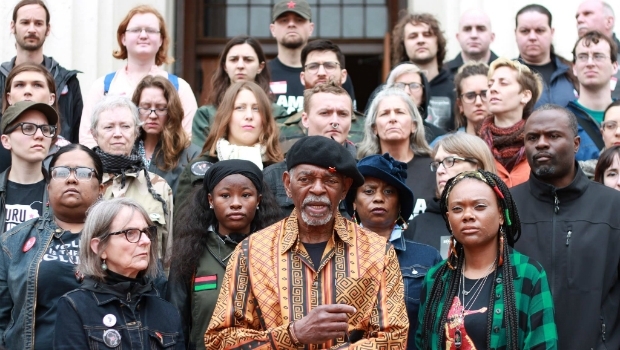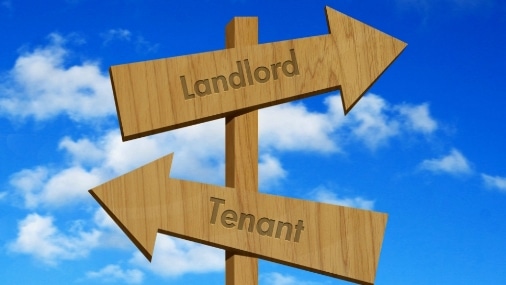
Landlord vs Tenant; Who Wins?
- Hear 2 Help You, Blog Updates, Standard Blog
- expensive, landlords, rent, renters, tenants, toronto
- June 12, 2019
Landlord vs Tenant; Who Wins?
One’s home must be the sanctuary that we need it to be. There’s an art when it comes to securing one’s home with all the trinkets that bring the comfort we need. Plopping down on the couch after a long day, settling in with a nice hot bath, or simply being greeted by loved ones as you enter the door. Home is definitely where our hearts lie.
If you’re renting, like so many of us are, there are simple things that you expect your landlord to ensure they are keeping their end of the bargain. But what happens when the natural upkeep of your unit, or entire building is not being met.
Or on the flip side, how about that tenant from “hell”. You know, that party that you’d wish you never rented to, or just wish they moved. This is such a frustrating process for all parties involved.
With so many other factors, the ongoing dispute between landlord and tenant will be a conversation for the ages. However, knowing your rights as a tenant and, or landlord will aid in your quest.
[wonderplugin_video iframe=”https://youtu.be/Gm6XijTJqxo?t=191″ lightbox=0 lightboxsize=1 lightboxwidth=960 lightboxheight=540 autoopen=0 autoopendelay=0 autoclose=0 lightboxtitle=”” lightboxgroup=”” lightboxshownavigation=0 showimage=”” lightboxoptions=”” videowidth=600 videoheight=400 keepaspectratio=1 autoplay=0 loop=0 videocss=”position:relative;display:block;background-color:#000;overflow:hidden;max-width:100%;margin:0 auto;” playbutton=”https://hear-2-help.com/wp-content/plugins/wonderplugin-video-embed/engine/playvideo-64-64-0.png”]
As always, please feel free to scroll through the dialogue below.
The landlord must follow the Ontario Human Rights Code
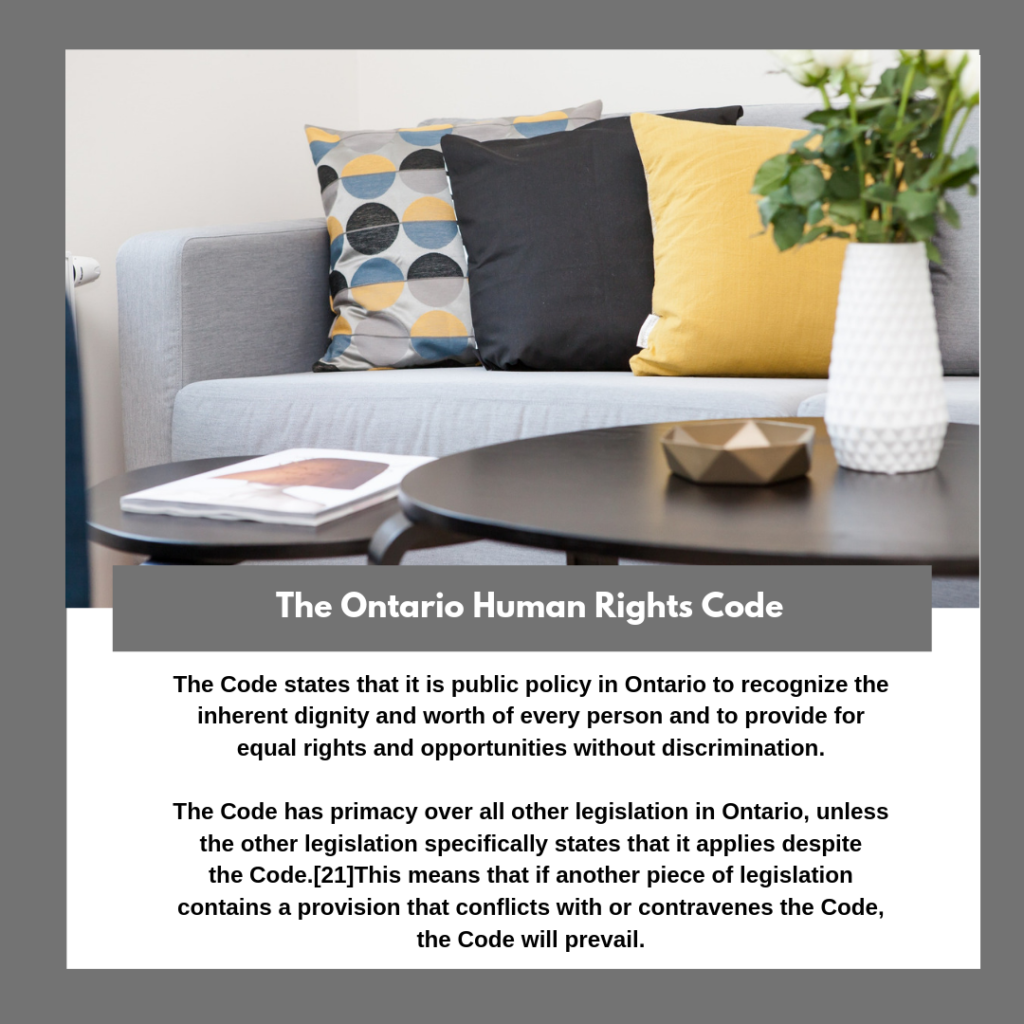
This primacy is recognized specifically in the context of rental housing. The Residential Tenancies Act (the RTA) contains a provision that states that the Act will override any other Act that may conflict with it, except for the Code.[22] As well, several Ontario Rental Housing Tribunal decisions have recognized the Code’s supremacy and special status in their rulings.[23]
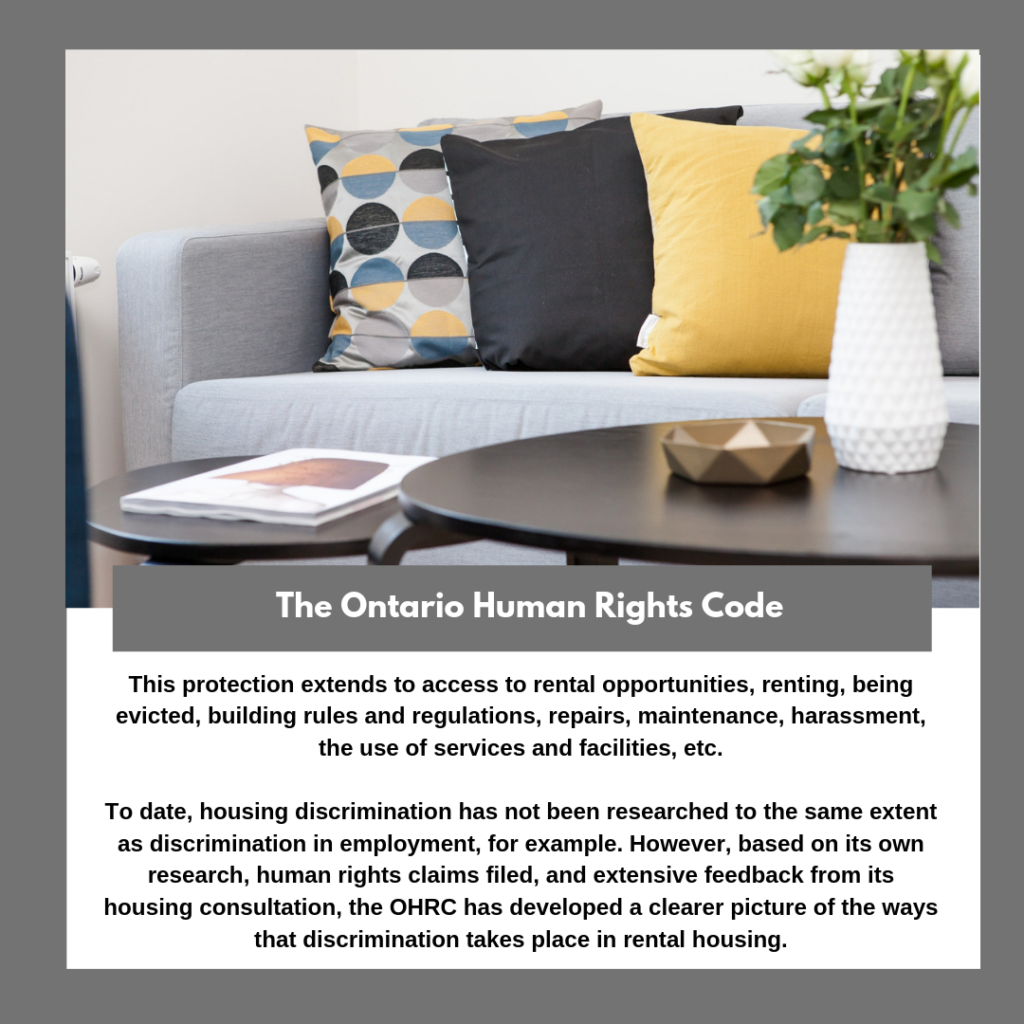
For example, the OHRC knows that low social and economic status is a common factor in many types of housing discrimination. People identified by Code grounds are disproportionately likely to have low incomes. The shelter allowance rates for people and families who receive social assistance are far below market levels.
This, together with a limited supply of adequate and affordable housing in many parts of the province, puts such people at a significant disadvantage when seeking shelter.
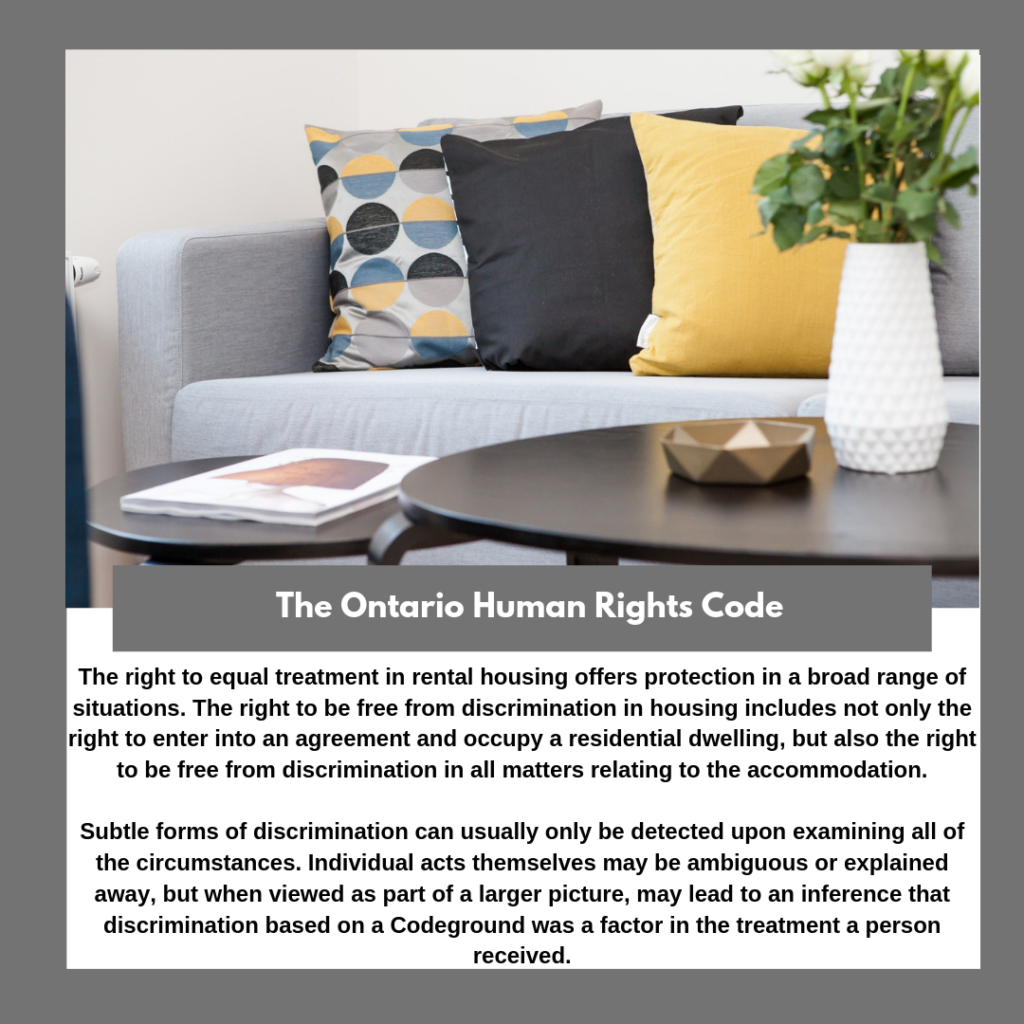
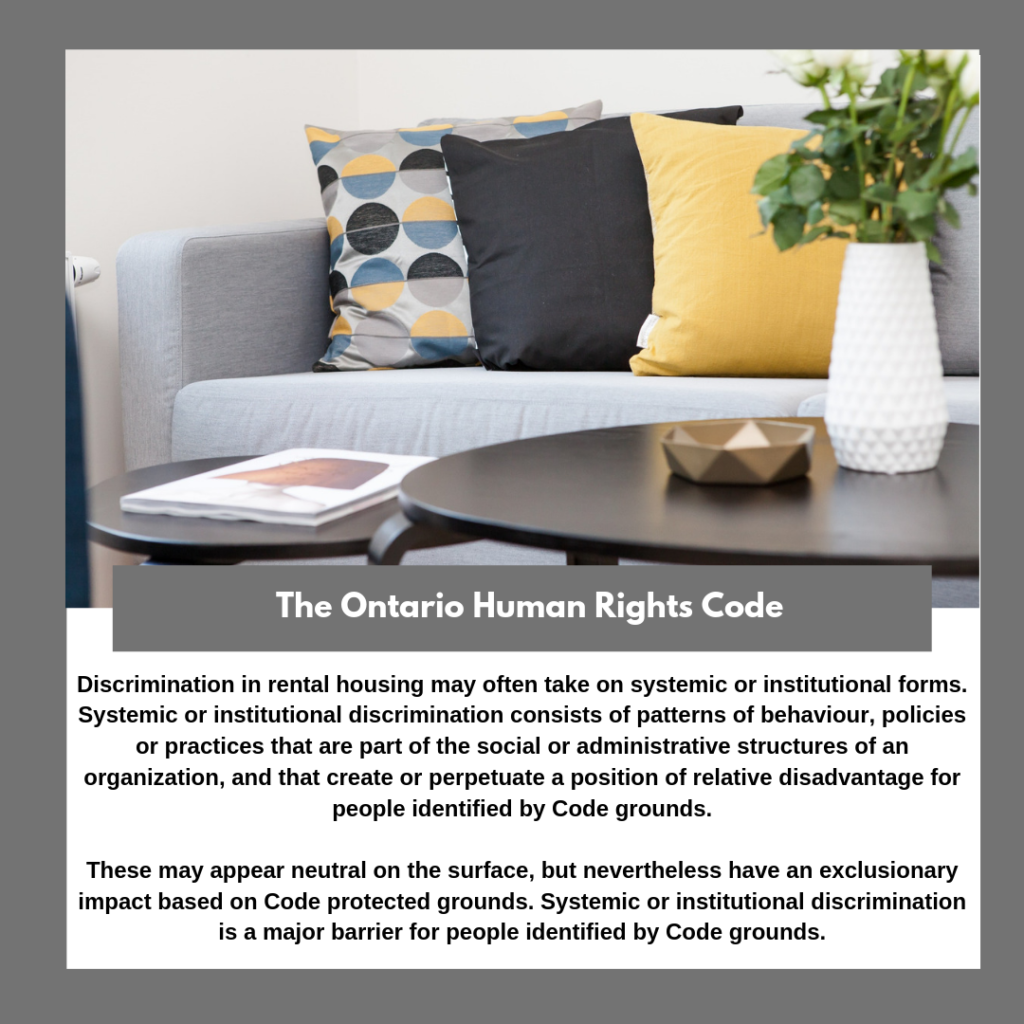
These may appear neutral on the surface, but nevertheless have an exclusionary impact based on Code protected grounds. Systemic or institutional discrimination is a major barrier for people identified by Code grounds.
Tenancy (Verifying Discrimination in Rental Homes)
Discrimination in rental housing accommodation is not just about denying access to housing opportunities. Tenants may experience unequal access to housing-related services or may otherwise face differential treatment throughout their tenancy. The right to be free from discrimination in housing includes all matters relating to the accommodation, including:
Equal treatment relating to the statutory obligations of a housing provider during occupancy (e.g. the right to sublet a unit, the right to receive prompt attention to needed repairs and/or maintenance, etc.) without discrimination based on a Code ground.
Responsibility of Landlords
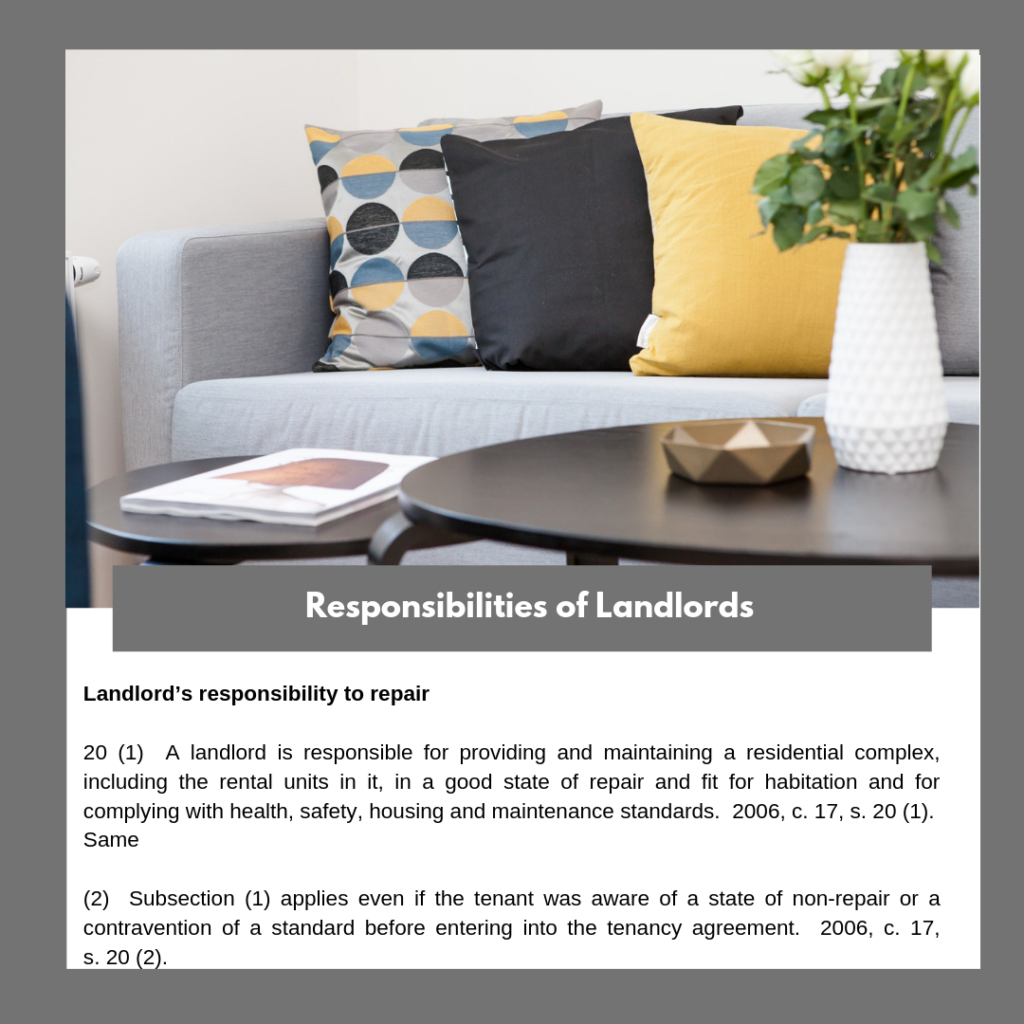
Landlord must not to interfere with reasonable enjoyment of the tenant
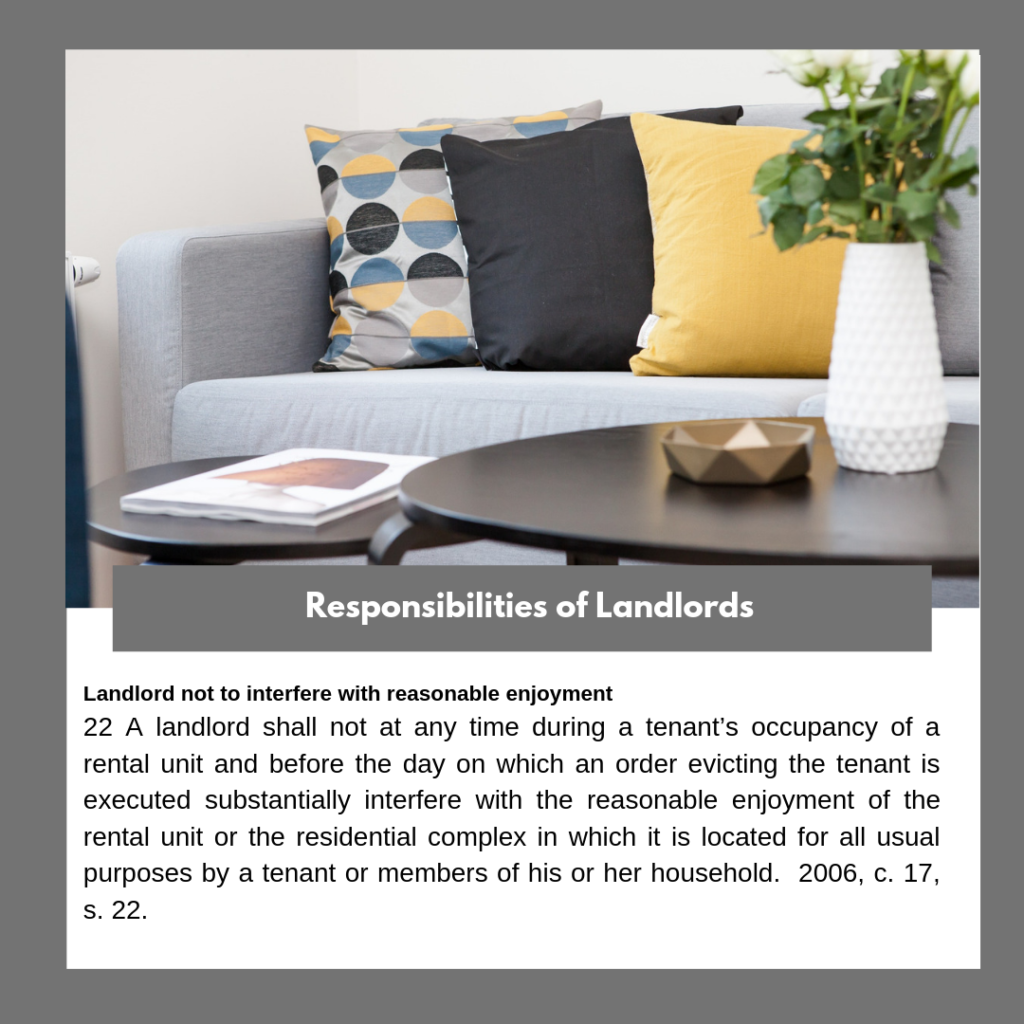
When the landlord can end the tenancy
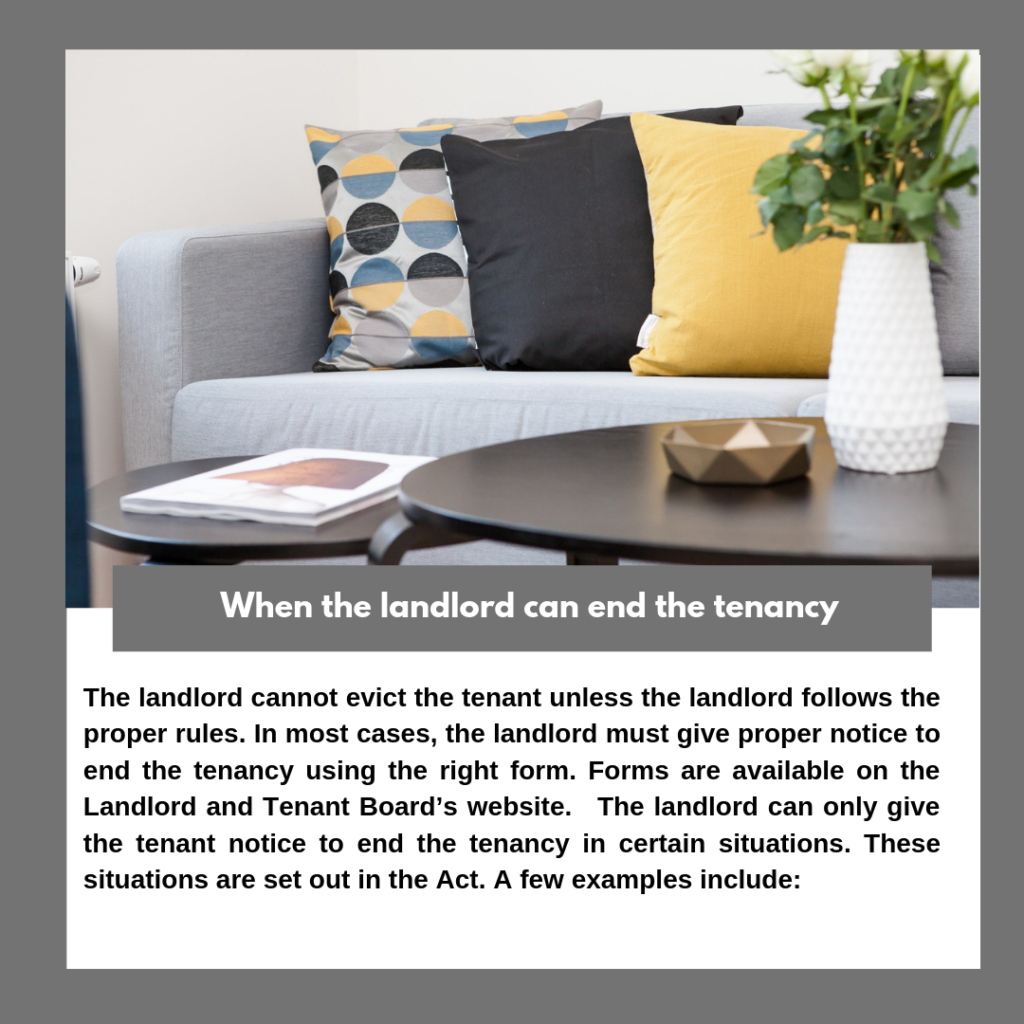
Tenant does not pay the full rent when it is due,
Tenant causes damage to the rental unit or building, and
Tenant substantially interferes with the reasonable enjoyment of other tenants or the landlord.
If the landlord gives a tenant notice to end the tenancy, the tenant does not have to move out. If the tenant does not move out, the landlord must apply to the Landlord and Tenant Board in order to evict the tenant.
The Landlord and Tenant Board will hold a hearing and decide if the tenancy should end. Both the landlord and the tenant can come to the hearing and explain their side to the Landlord and Tenant Board.
If the Landlord and Tenant Board orders an eviction, the eviction order can only be enforced by the Sheriff (Court Enforcement Officer). It is an offense for the landlord to evict a tenant without following this process. If convicted, the landlord could face a fine of up to $25,000 (for an individual) or $100,000 (for a corporation).
Understanding the Tenant’s Rights
Responsibility of Tenants
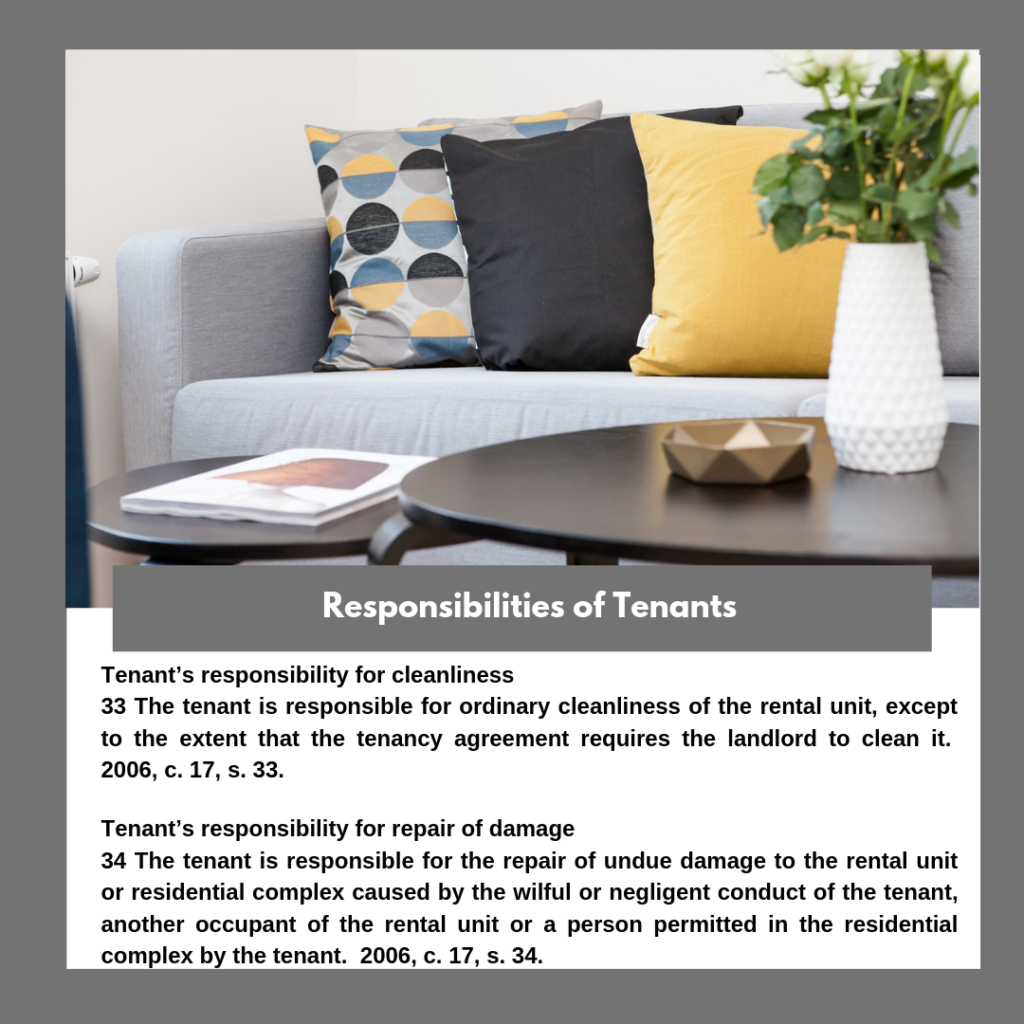
When the tenant can end the tenancy
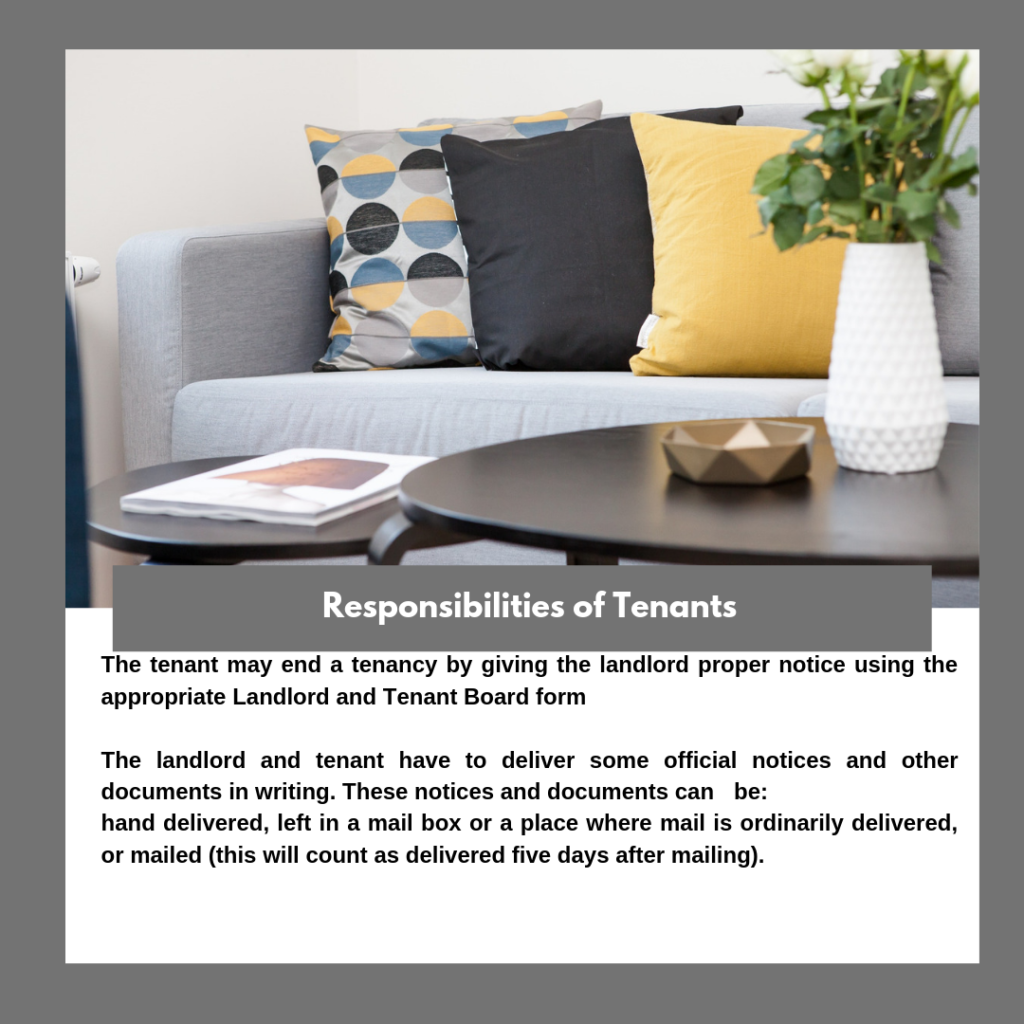
There are also other ways to serve notices and documents. For more information, contact the Landlord and Tenant Board or see the Rules of Practice on its website.
Residential Tenancy Agreement (Standard Form of Lease, Update April, 2018)
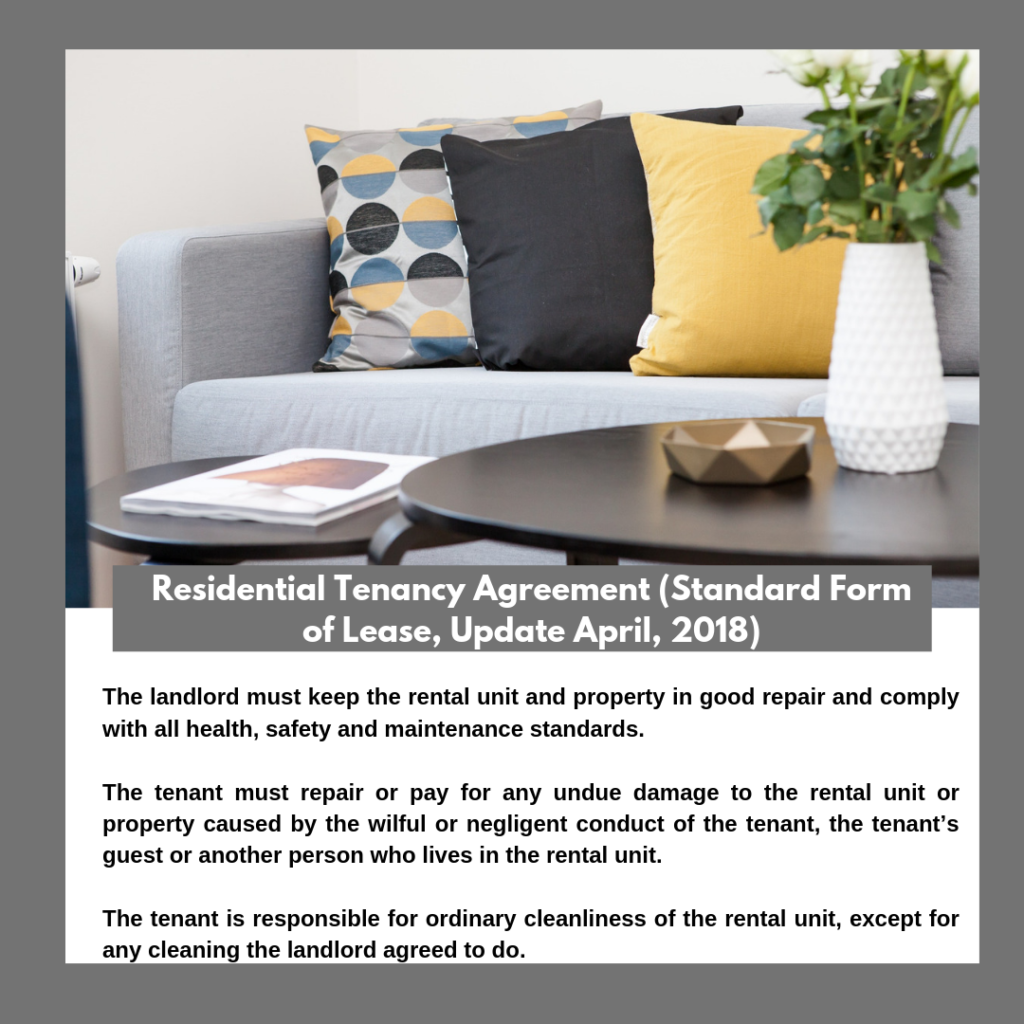
Tenant applications
A tenant or former tenant of a rental unit may apply to the Board for any of the following orders:
- An order determining that the landlord has breached an obligation under subsection 20 (1) or section 161.
- An order determining that the landlord, superintendent or agent of the landlord has withheld the reasonable supply of any vital service, care service or food that it is the landlord’s obligation to supply under the tenancy agreement or deliberately interfered with the reasonable supply of any vital service, care service or food.
- An order determining that the landlord, superintendent or agent of the landlord has substantially interfered with the reasonable enjoyment of the rental unit or residential complex for all usual purposes by the tenant or a member of his or her household.
Maintenance and Repairs

If needed, the tenant can apply to the Landlord and Tenant Board.
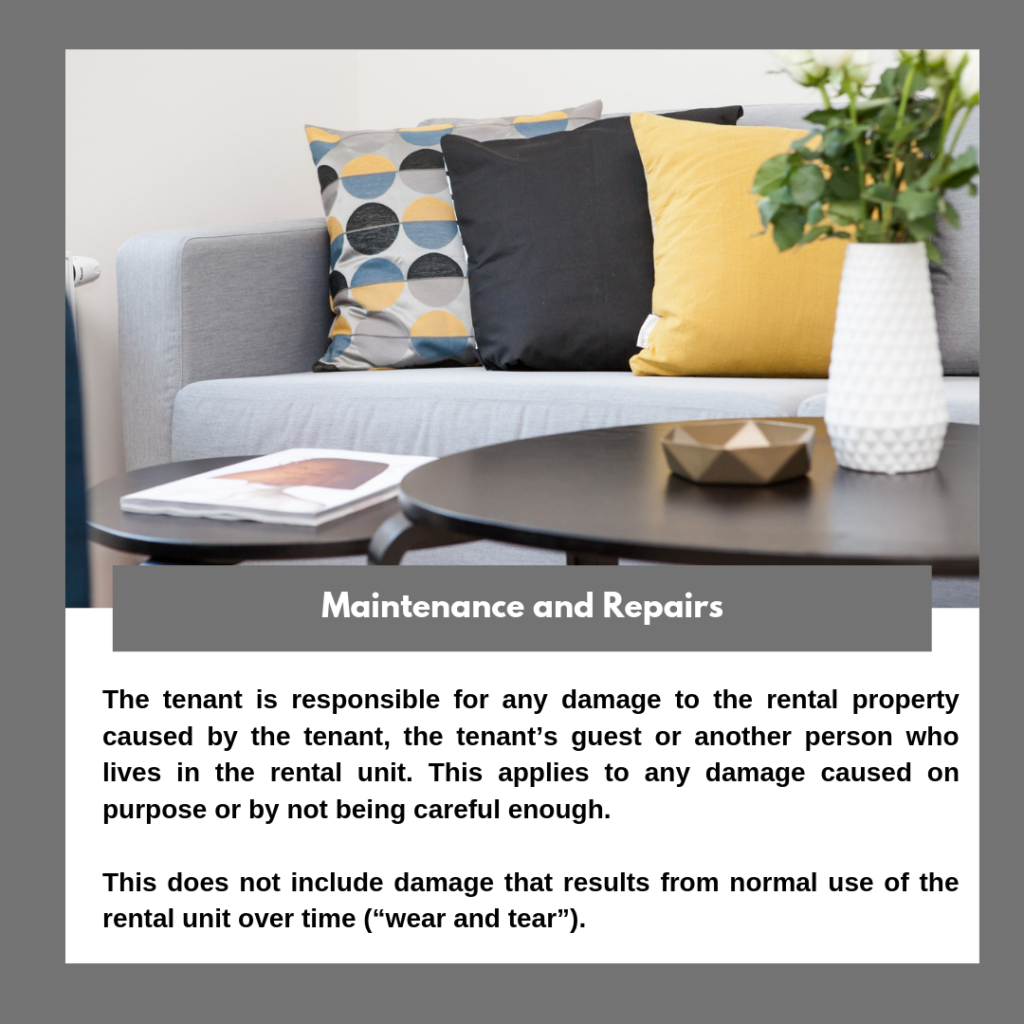
Also…
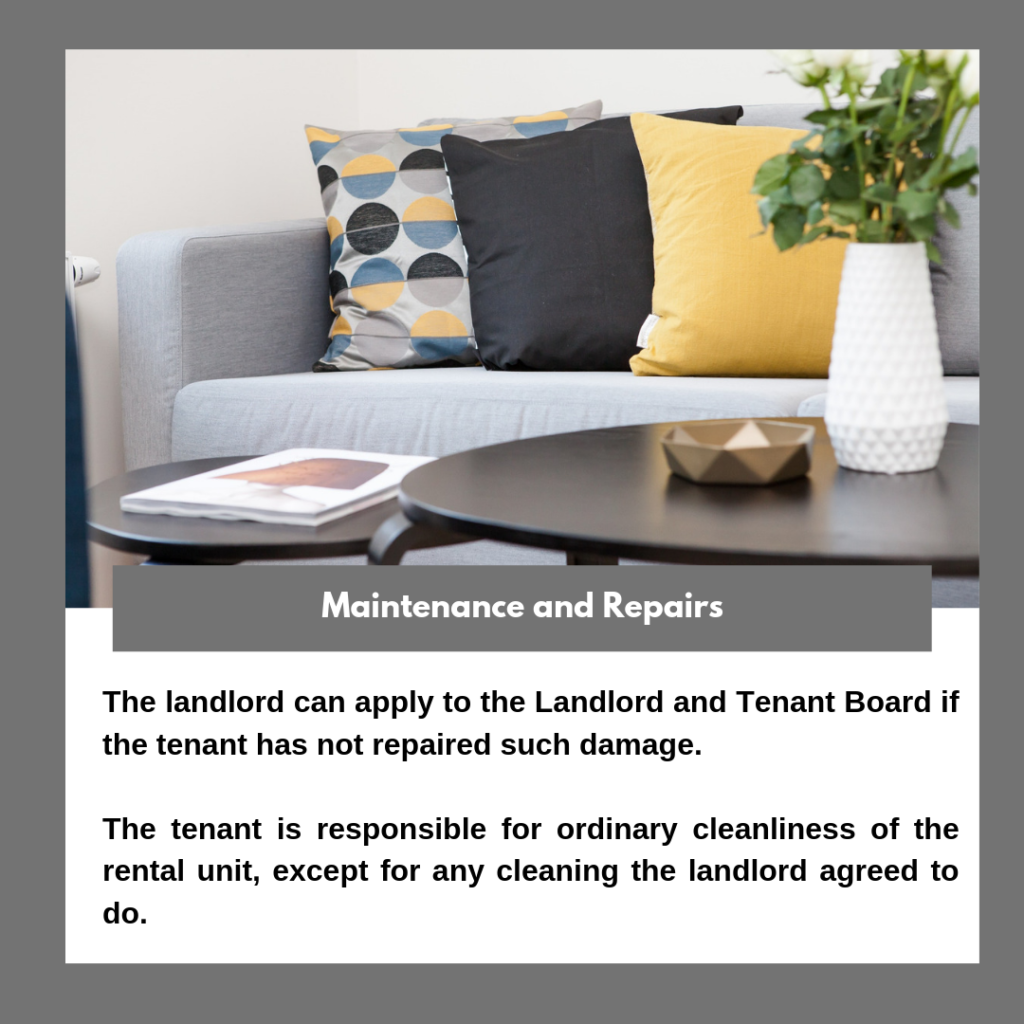
List of Resources
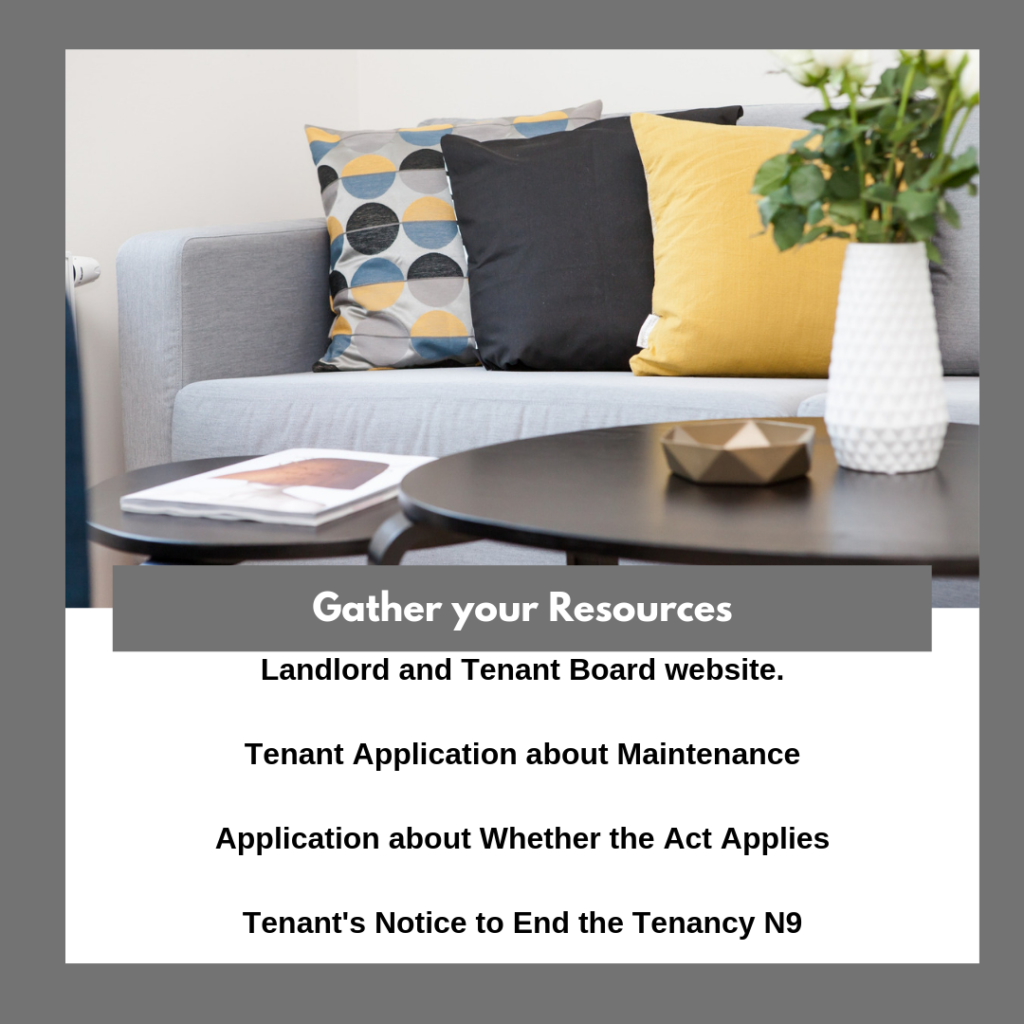
We hope that this information will empower you.
Please feel free to share this with whomever.
Til next week.


